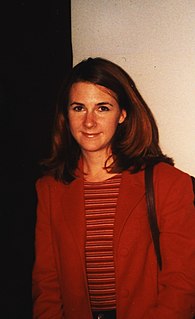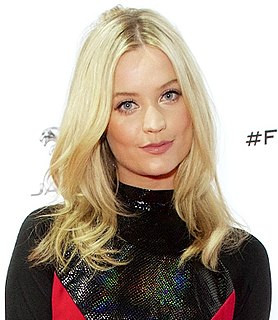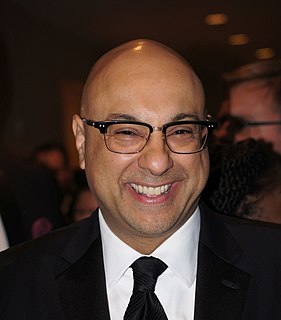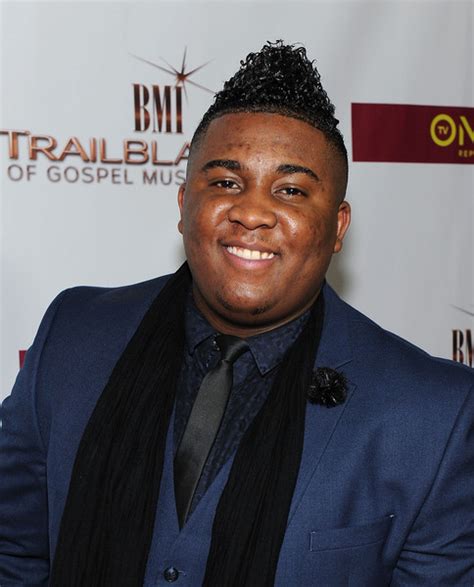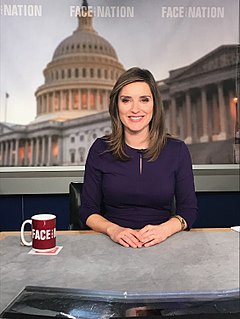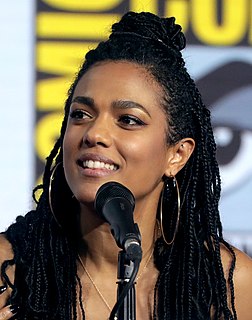A Quote by Tabitha Soren
At MTV, although the audience is smaller, I found it more interesting to deliver news to a specific group of people, because my story then did not have to try to be all things to all people.
Related Quotes
I think its going to be continually tougher on the big networks as more cable channels do really interesting television. The big networks have a choice to make: Do we try to be all things to all people and get the shows that will deliver 20 million viewers a week? Are we the McDonald's of television? Or are we going to try to be more specific?
The weakness of cable news is that it chases its audience around. Your audience wants fast-paced, popular news. It needs real news. Cable news changes its stripes based on audience reaction. Viewers are reacting well to breaking news? You probably do more breaking news than you need to. The struggle is building something so that people will come to you, as opposed to constantly changing what you are because you're unsure of where the audience is.
One of the things that I was kind of holding on to from 'The Daily Show' was there was an exhaustion that I would feel because we just kind of got caught up in the news cycle. You tell a story, and that's an interesting story, and then the next day we have to drop it and talk about something else. That's so unfair to the story and the people.
I think if the content is good and the content is interesting, the at home viewer will watch it for as long as the story is interesting thus the responsibility for making the story interesting falls on the shoulders of the reporter or the producer. Then I'm disappointed that producers have felt that television can only be told in 59 second story bursts because we've become, it's become journalism based on MTV, video electronic editing and cutting.
Smart brands never try to appeal to more than their audience group. Assuming you're audience is one of the segments that watches, it's your chance to galvanize this specific group, which is larger here than anywhere else, with a bold new idea that can re-magnetize the human/brand connection for a new year.
I think figuring out how to do the best job you can, because frankly, no matter what gender you are - in television news - you're all measured by the same thing: which is the news you make or break, and the ratings you are able to deliver. But, how the audience hears you - or how the interviewer does - is also interesting.
This is not just a simple story of "money can't buy happiness." Or maybe that's just what it is. And if it is, why shouldn't it be? Because if this is something we are already supposed to know, then why don't we know it? Why do we chase and scrabble and fight for things to flaunt, why? Why do we reach for power over other people, and through the thin superiority of our possessions, believe we have it? Why do we let money make people bigger, and allow those without it to be made smaller? How did we lose the truth in the frantic, tribal drumbeat of more, more, more?
Now your kids can't escape. Thirteen-year-olds back then, if they didn't watch the evening news, they didn't see news. If they didn't watch the 6:30 or seven p.m. news, they didn't see news. Today younger people have much more access to that kind of hard news than you did when you were 13 back then.
I found a lot of comfort in the fact that 30-odd people have been companions before me. I think that when there are so many people contributing so many things to the show, all you can do is make it your own. You can't try to emulate anyone, because who would you pick? The companions are very much the everyman, and the audience watches the story through their eyes, so they could be the person next door. And everybody's different.
I'm confused about who the news belongs to. I always have it in my head that if your name's in the news, then the news should be paying you. Because it's your news and they're taking it and selling it as their product. ...If people didn't give the news their news, and if everybody kept their news to themselves, the news wouldn't have any news.
That story about the two women in my life is - a lot of people get upset, a lot of people question it. Steven Soderbergh said to me, "The story of your life is incredible. The real story of your life that's interesting, more interesting than all the other stuff - the franchises, the movies, the songs, Elvis Presley, Frank Sinatra - the real thing that's interesting and unbelievable is the relationship with these two women. And if you're willing to put that out there, you know then, you're going to have a great movie. Because that's the movie."
I like to service the full audience of America, so I try to do things that are just real artistic, like when they don't have the most money, but it's a great piece of work. Then, there are big, fun comedies and big animated movies for kids. I want to do things for my nieces and nephews. Ultimately, we're trying to deliver something entertaining to an audience. As long as it can entertain the audience, and it makes me or my niece and nephew laugh or cry, then I think it's good.
